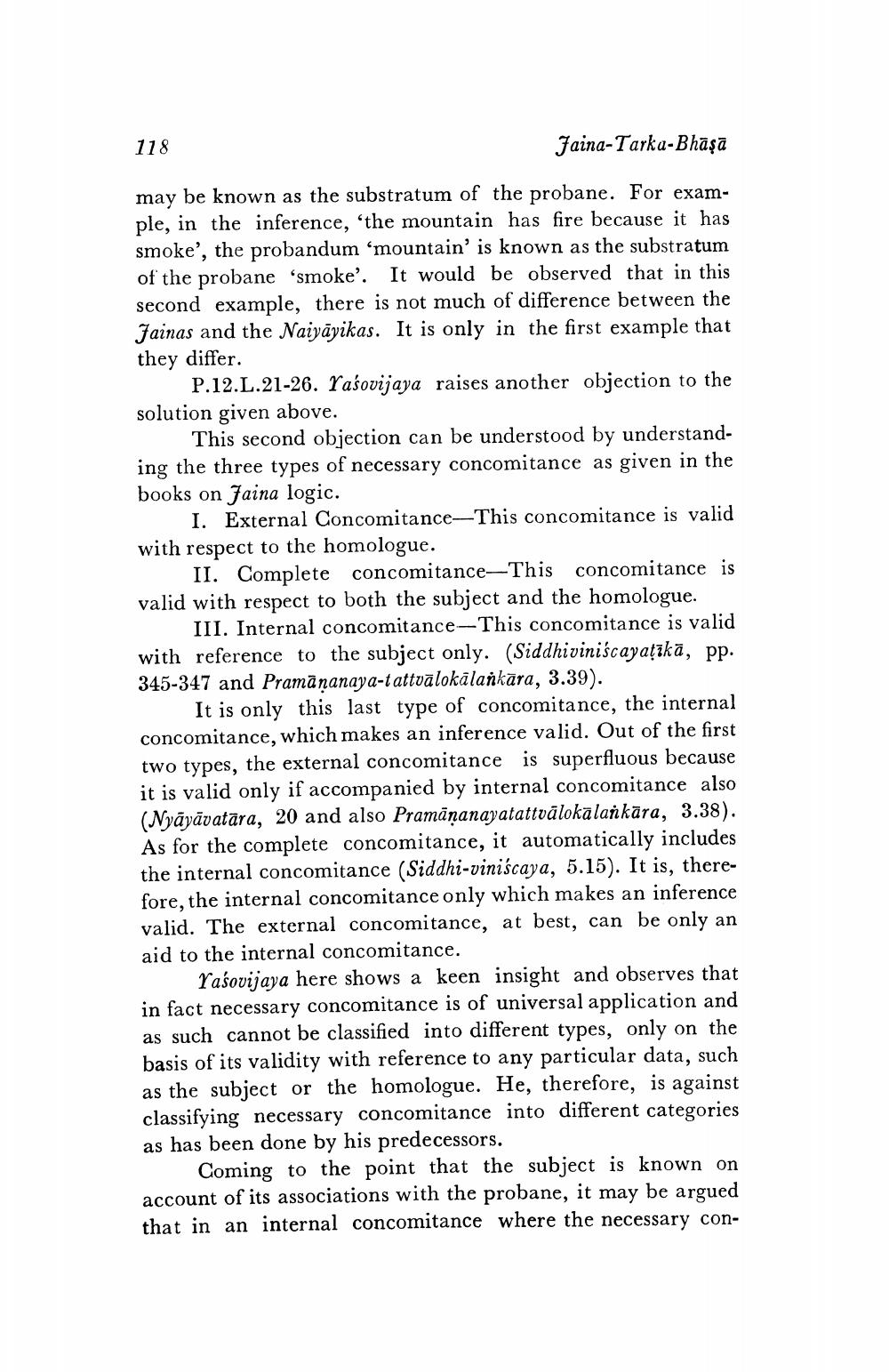________________
118
Jaina-Tarka-Bhāṣā
may be known as the substratum of the probane. For example, in the inference, 'the mountain has fire because it has smoke', the probandum ‘mountain' is known as the substratum of the probane 'smoke'. It would be observed that in this second example, there is not much of difference between the Jainas and the Naiyāyikas. It is only in the first example that they differ.
P.12.L.21-26. Yasovijaya raises another objection to the solution given above.
This second objection can be understood by understanding the three types of necessary concomitance as given in the books on Jaina logic.
I. External Concomitance-This concomitance is valid with respect to the homologue.
II. Complete concomitance-This concomitance is valid with respect to both the subject and the homologue.
III. Internal concomitance-This concomitance is valid with reference to the subject only. (Siddhiviniscayațīkā, pp. 345-347 and Pramānanaya-tattvālokālankāra, 3.39).
It is only this last type of concomitance, the internal concomitance, which makes an inference valid. Out of the first two types, the external concomitance is superfluous because it is valid only if accompanied by internal concomitance also (Nyāyāvatāra, 20 and also Pramānanayatattvālokalankāra, 3.38). As for the complete concomitance, it automatically includes the internal concomitance (Siddhi-viniscaya, 5.15). It is, therefore, the internal concomitance only which makes an inference valid. The external concomitance, at best, can be only an aid to the internal concomitance.
Yasovijaya here shows a keen insight and observes that in fact necessary concomitance is of universal application and as such cannot be classified into different types, only on the basis of its validity with reference to any particular data, such as the subject or the homologue. He, therefore, is against classifying necessary concomitance into different categories as has been done by his predecessors.
Coming to the point that the subject is known on account of its associations with the probane, it may be argued that in an internal concomitance where the necessary con




